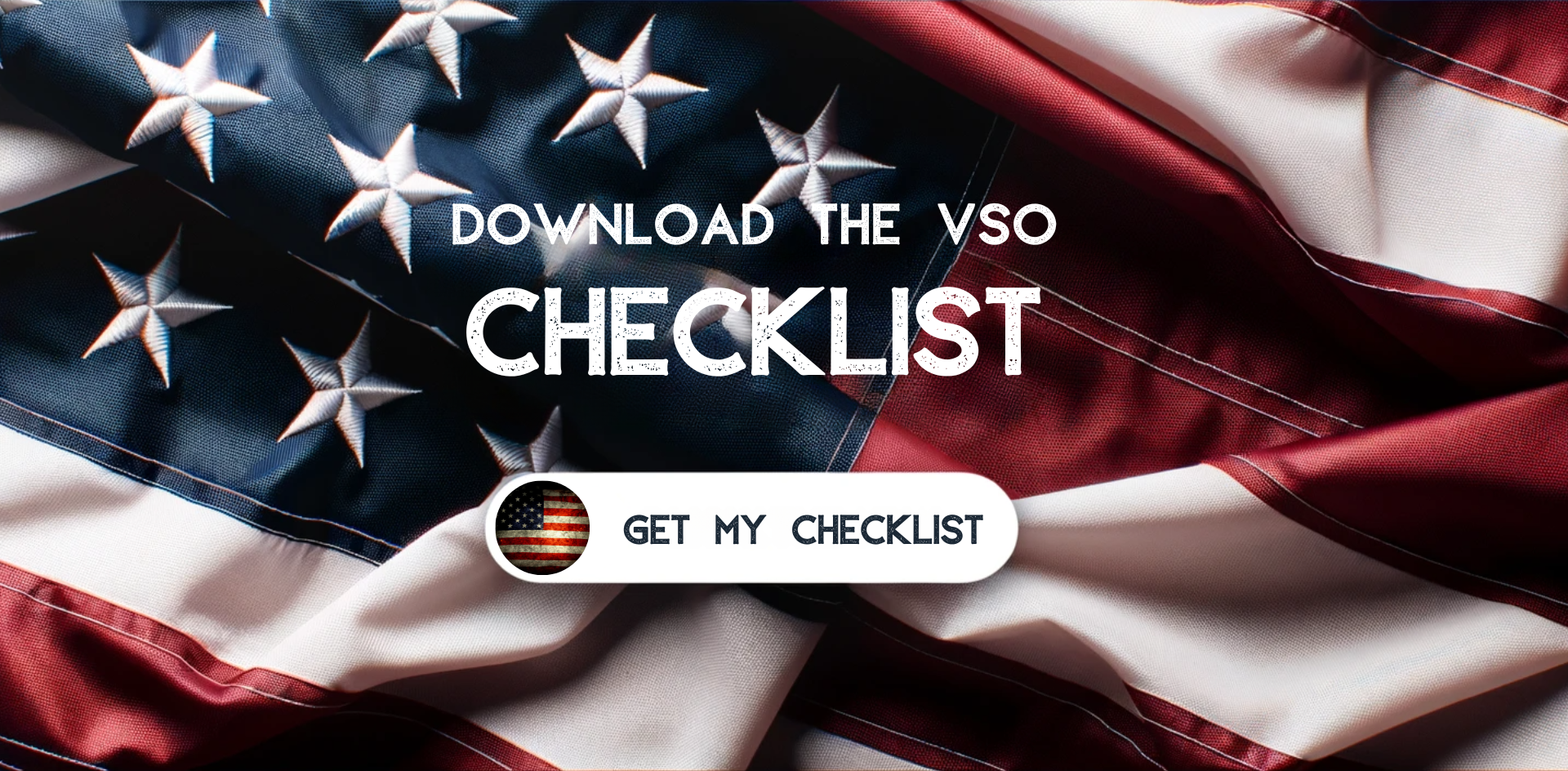Navigating the labyrinth of disability claims can be a daunting endeavor for Veterans reintegrating back into civilian life
With the burden of finding employment, reconnecting to the local community, and transitioning out of military service, dealing with VA benefits claims can add a substantial extra layer of stress.
This is where the expertise of a Veteran Service Officer (VSO) becomes indispensable. But you want to make sure you pick the right VSO for your specific disability claim.
In this guide, we will explore the best way to select the right VSO for your disability claims and when to consider legal counsel instead.
The Indispensable Role of Veteran Service Officers
Veterans Service Officers are the unsung heroes in the quest for deserved benefits. They are the bridge between Veterans and the Department of Veterans Affairs (VA), providing guidance through the intricate VA claims process. With a profound understanding of the system and a shared empathy stemming from their own military experiences, VSOs are uniquely positioned to support Veterans in securing their benefits.
The assistance of a VSO is particularly vital when initiating a claim. They ensure that all necessary paperwork, including your DD214, service treatment records, and pertinent medical evidence, is meticulously compiled and submitted. This support is not only invaluable during the initial filing but also if new disability claims emerge post-discharge.
Selecting the Right Veteran Service Officer
Choosing a Veteran Service Officer (VSO) is a critical step in ensuring your disability claim is handled correctly. A VSO’s role is to act as your advocate, guiding you through the VA’s procedures and helping you gather the necessary evidence to support your claim. To find a VSO who is best suited to your needs, start with the eBenefits portal or consult the VA Office of the General Counsel’s list for accredited individuals.
It’s important to consider a VSO’s area of expertise. Some VSOs have specialized knowledge in dealing with claims related to specific service eras or types of injuries. For example, certain organizations are dedicated to assisting Veterans who served in Vietnam, the Gulf War, or the conflicts in Iraq and Afghanistan.
These organizations understand the unique conditions associated with each era, such as exposure to Agent Orange or combat-related traumatic injuries.
Similarly, if you have a particular injury such as a traumatic brain injury (TBI), spinal cord injury, or PTSD, look for a VSO with experience in these areas. Organizations like the Paralyzed Veterans of America are equipped to handle the specific challenges that come with certain types of injuries, ensuring that your claim addresses the unique aspects of your condition.
When selecting a VSO, it’s also wise to seek out recommendations from your network of fellow Veterans. Word-of-mouth referrals can lead you to a VSO who has a proven track record with your peers. A VSO’s reputation among Veterans who have faced similar challenges can be a strong indicator of their ability to effectively manage your claim.
It’s essential to verify that the VSO you choose is accredited. Accreditation means they have been officially recognized and are authorized to represent Veterans before the VA. This is a crucial step in ensuring that the advice and assistance you receive are both reliable and lawful.
Lastly, the right VSO should be someone you can trust and communicate with openly. They should be willing to listen to your concerns, provide clear explanations about the claims process, and be transparent about what you can expect. A good VSO will make you feel confident that your claim is in capable hands.+
Choosing the right VSO for your disability claims is a critical decision that can significantly impact the outcome of your benefits. With the right support, the daunting process becomes navigable, ensuring that you receive the benefits you rightfully deserve for your service to the nation.
When to Think About Retaining a Veteran’s Lawyer
Veteran Service Officers (VSOs) are well-equipped to handle most aspects of the VA claims process, but there are specific scenarios where you might need the expertise of a lawyer.
If you’re dealing with a complex medical claim, for instance, where the connection between your service and your disability isn’t straightforward, a lawyer can be crucial. They have the legal expertise to navigate through the complexities of such claims and can work to present your case in the most effective way possible.
Additionally, if your claim has been denied and you’re considering an appeal, a lawyer who specializes in Veterans’ law can be invaluable. They understand the nuances of the law and can pinpoint where the VA might have erred in their decision.
Their role is to advocate on your behalf, ensuring that all the relevant evidence is considered and that your appeal is as strong as it can be.
Veterans’ law attorneys are also familiar with the VA’s latest regulations and procedures, which can change frequently. Their up-to-date knowledge can be a significant advantage in ensuring that your claim or appeal is handled correctly under the current rules.
While lawyers do charge for their services, many work on a contingency basis, meaning you won’t pay unless they win your case. This can be beneficial for Veterans as it provides access to legal services without upfront costs, and it ensures that the lawyer is directly invested in the success of your case.
In summary, while VSOs provide a critical service to Veterans at no cost, there are times when the specialized legal skills of an attorney are necessary.
If you or a loved one are facing complex medical claims or navigating the appeals process, the targeted expertise of an experienced Veteran’s Lawyer can make a significant difference in the outcome of your claim.
Contact Veterans’ Law Group today for a free consultation.
You may also like
These related articles



